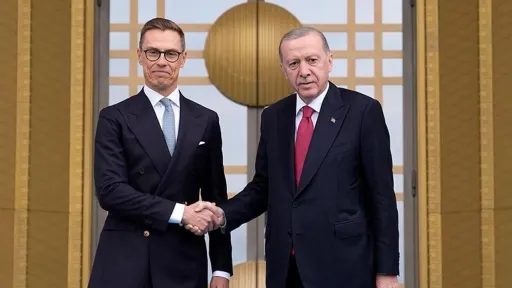By Brian Okoth
Kenyan President William Ruto has said that the country's currency – the shilling – has weakened significantly against the US dollar because the United States has consistently raised its Federal Reserve interest rates over the months.
In an interview with Kenyan journalists at State House in the capital Nairobi on Sunday, Ruto said that the former administration of President Uhuru Kenyatta "artificially" suppressed the value of the dollar against the Kenyan shilling.
The US dollar was exchanging at 153.99 shillings against the US dollar as of Friday, December 15, 2023, knocking off nearly 24% of the shilling's value in under a year.
On December 13, the US Federal Reserve announced it was leaving interest rates unchanged (between 5.25 and 5.5%), in a move that many believe would end the central bank's rate hike cycle, and set the stage for rate cuts in the year ahead.
People 'taking dollars to the US'
The Federal Reserve had raised interest rates 11 times since March 2022 – the fastest pace of tightening since the early 1980s.
Ruto says the Federal Reserve's move to raise rates over the months increased the value of the US dollar, thus affecting the value of the local currency.
"Because of USA's increase on interest rate, there was (an increased) demand for the dollar. People who had invested outside the US, began to see an opportunity in the US," Ruto said in an interview aired on major television stations in Kenya.
"And so, there was a lot of dollars leaving Kenya and other countries, going to the US. What does that mean? It reduces the supply of dollars (in the local market). And therefore, when compared to the Kenyan shilling, the (dollar strength) situation went up," he said.
'Global affair'
The head of state said that the US dollar had gained significantly against many currencies world over, not only Kenya.
"Everybody expected that the US would ease on (its) interest rate, but they did not. That was (against) the expectation of the whole globe."
Ruto added that the "artificial exchange rate" maintained by the former administration was "unsustainable."
"In Kenya, we were maintaining an artificial (currency) exchange rate. You heard the Central Bank (of Kenya) Governor Mr (Kamau) Thugge saying that the exchange rate of 130 Kenyan shillings that we were maintaining (against the US dollar) was artificial.
'Unsustainable'
"It was maintained using our foreign exchange reserves. The government of Kenya spent 2.6 billion US dollars, that is almost 400 billion Kenyan shillings, to support the Kenyan shilling so that it does not go to its actual exchange rate."
Asked how the exchange rate was being "manipulated", Ruto said: "They did that by selling Kenya's dollar reserves to the market so that they could increase the supply of dollars at a rate that was not the actual price, a form of subsidised price. That (artificial exchange rate) was unstainable. When I came to power (in September 2022), I decided that we will not continue with the artificial supply of dollars to the market."
He added: "It is better for the (exchange) rates to be up, and we are not losing any foreign currency as a country. Imports to Kenya have gone down because our exports are now much attractive. In fact, the people in the tea and coffee sectors are earning much more (now) than they were earning before."
In a past address, former President Uhuru Kenyatta distanced himself from the blame by Ruto's administration, saying the head of state was unable to deliver on his campaign promises.
Disputed oil deal
Ruto also addressed the question on a contested government-to-government oil deal that, he said, would help strengthen the value of the shilling against the US dollar, but has actually "failed" to do so.
"If I had not structured the government-to-government deal on fuel, the shilling would be exchanging at 250 shillings today. Many banks were waiting for the shilling to exchange against the dollar at 200, but they will have to wait for a while."
Under the deal, Kenya entered into an oil supply agreement with three Gulf-based companies to manage demand for dollars.
Asked why the currencies of Kenya's neighbours were not falling in value at the same rate as Kenya, Ruto said: "We are a middle-income country, they are in a different category. You cannot compare them and us. So, you are not comparing the same stuff. And I do not want to talk about other countries because I do not want to say which country is better than the other."
Imports policy
Ruto said to avert further weakening of the shilling, his government will introduce policies that will make it less lucrative to import goods that can be produced locally.
He gave examples of furniture, food items, construction materials, and cement as the commodities that can be obtained locally.
























